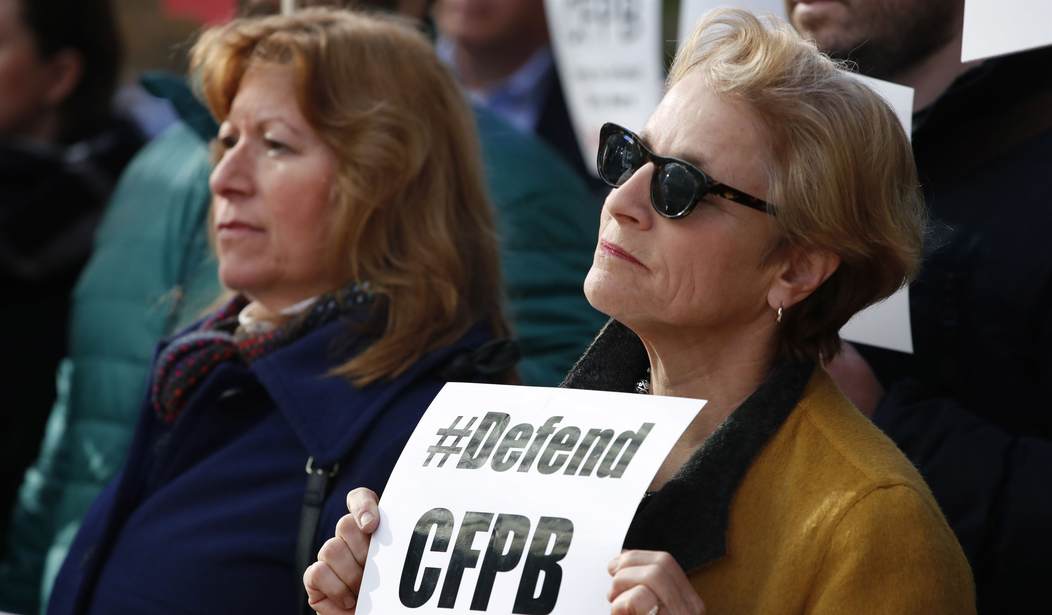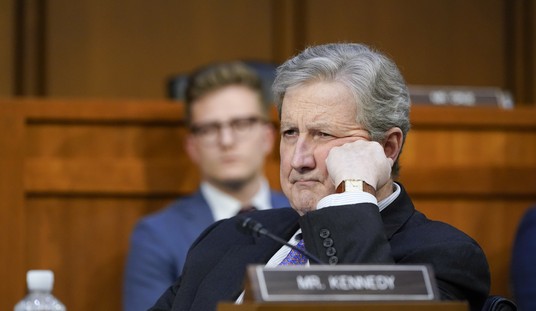There has, of late, been a fair amount of news about a piece of the Deep State that shouldn't even exist, as anyone who has ever actually read the Constitution would understand. That piece of the Deep State is the Consumer Financial Protection Bureau, and they have been embroiled in some discrimination scandals.
Previously on RedState: New Details: Consumer Financial Protection Bureau Shells Out $6M to Close Discrimination Lawsuit
It's Bigger Than the FDIC: Consumer Financial Protection Bureau Beset With Discrimination Charges
Now, in the latest piece of news from this unconstitutional agency, we see an ongoing pay raise fight.
The Consumer Financial Protection Bureau is embroiled in tense salary talks, with unionized employees accusing the agency of approving pay raises for senior officials while leaving line employees and middle managers behind.
The CFPB and its chapter of the National Treasury Employees Union have been negotiating salaries, including sessions overseen by federal mediators, for around a year. The union has sought an increase in pay bands, which are the salary ranges for employees of different ranks. The escalating tensions mark the first-ever expiration of a union contract in the CFPB’s history, and add to budget-related concerns at the agency as the US Supreme Court weighs its independent funding.
The CFPB has refused to raise the bands for line employees and lower-level managers, but hiked overall pay levels for the most senior executives, such as associate directors, assistant directors, and others working out of the director’s office, according to about half a dozen union and other internal CFPB emails and documents obtained by Bloomberg Law.
Now, granted, with this issue, there would be a complication not mentioned here. The salaries of senior officials are presumably not part of the union contract. Raises for the middle managers, the rank-and-file, and other National Treasury Employees Union members are dependent on the process of negotiating a contract, which would presumably be required before a pay raise can be granted. Not so for the executives.
What's worse, the optics of this are really bad, not least of the reasons being the amounts these people are making:
CFPB employees in the highest pay band, known internally as CN-90, saw their total pay jump to as high as $269,000 in 2024, up $9,500 from 2023. The next level, CN-82s including associate directors, had their pay max bumped up to $269,000 as well, a $14,000 hike over last year. And the next level down, CN-81, saw the top of their overall pay come in at $262,000, a $7,000 increase, according to the union communication.
“They did nothing for first-line supervisors and other middle managers, and they continue to stonewall on compensation for us during mediation,” the union email said.
Without a bump in pay bands, CFPB employees at the top level of each band may be unable to get annual merit raises or bonuses, union representatives say.
According to Payscale.com, the average salary for a CEO in the United States at present is $163,843. The people in the highest pay band at CFPB — note that while these people are executives, they are not at the CEO level — are making over $100,000 more than the average American CEO.
Not only is this a classic example of bureaucratic privilege (yes, that's a thing) the entire existence of the CFPB is a waste of taxpayer's money; the executives here are making fat salaries, and their benefits packages are doubtless wondrous. The CFPB, an output of Dodd-Frank and the creation of the economically illiterate Elizabeth Warren (D-MA), should not even exist. There is no constitutional authorization for this bureau (or scores of others.) If we could get a Javier Milei-styled president who was serious about taking a chainsaw to the federal budget, this would be a good place to start. Send these squabbling bureaucrats home, shutter this unconstitutional agency, and save the taxpayers some money.













Join the conversation as a VIP Member